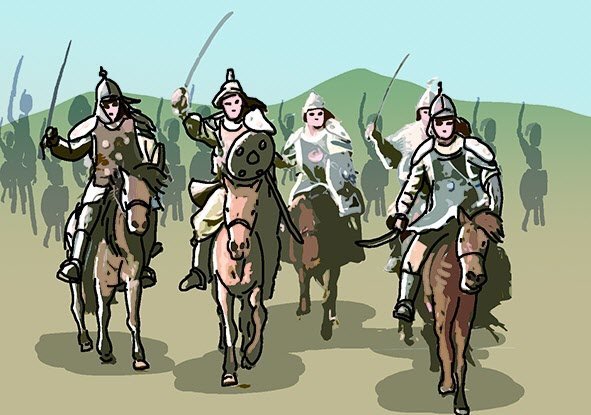Goryeo-Khitan War and Qing invasion of Joseon
Goryeo-Khitan War and Qing invasion of Joseon
Posted November. 21, 2023 09:09,
Updated November. 21, 2023 09:09

The Khitan persistently invaded the Goryeo dynasty from the end of the 10th century to the early 11th century. During its final invasion in 1018, Xiao Paiya made a bold movement to defeat Goryeo. He aimed for a quick win by skipping hub cities and supply bases in the middle and heading straight to Kaesong based on the cavalry’s mobility and local procurement capabilities.
Xiao Paiya’s attempt almost succeeded but failed in the end due to the even bolder decision of Goryeo’s King Hyeonjong to defend the city and the Goryeo military’s fierce chase. As the Khitan military failed to enter Kaesong, they missed an opportunity to recover from hunger and exhaustion. The Khitan military retreating, tired and demoralized, were met with the Goryeo military led by Kang Kam-chan in the field near Kuju and were completely destroyed. That was the Battle of Kuju.
The real goal of the Khitan was to conquer the Song dynasty. If they invade the Song dynasty by mobilizing the entire army, either Goryeo or Jurchen can attack Khitan, putting Khitan between two fires. Therefore, Khitan decided to conquer Goryeo and Jurchen first to remove such a risk.
Seven hundred years later, the Qing dynasty invaded the Joseon dynasty. It’s now called the Qing Invasion of Joseon. The invasion had the same purpose, except it was for the Ming dynasty instead of Song. While the tactical purpose was slightly different, their strategy of engaging in a lightning war with a spearhead force was similar. However, the Cheokhwa faction of Joseon was completely unaware of the reasons for Qing’s invasion, even after Qing explained them. The faction thought it was a bluff even when the Qing military pushed forward. Even when they were notified that Emperor Taizong of Qing had arrived, they did not believe it. “Why would Emperor Taizong come all the way here? This war is just an emotional invasion by a commander in the frontier.”
The intellectuals of Joseon always emphasized the importance of studying history by saying that people should learn from history and act on the lessons. Why did they forget the lessons from the Goryeo-Khitan War? Because they prioritized ideologies and thoughts over lessons from history. They took advantage of history rather than learning from it. They distorted the reality for their purpose and called for things they would want to do rather than what they should do. The result was a humiliating defeat. Four hundred years later, a similar situation is being repeated. History repeats itself. Perhaps there might be clear limitations on human intelligence.






![[단독]“두건 쓴 무장경비대 길목마다 검문…택시로 20시간 달려 탈출”](https://dimg.donga.com/c/138/175/90/1/wps/NEWS/IMAGE/2026/03/05/133470282.1.jpg)
